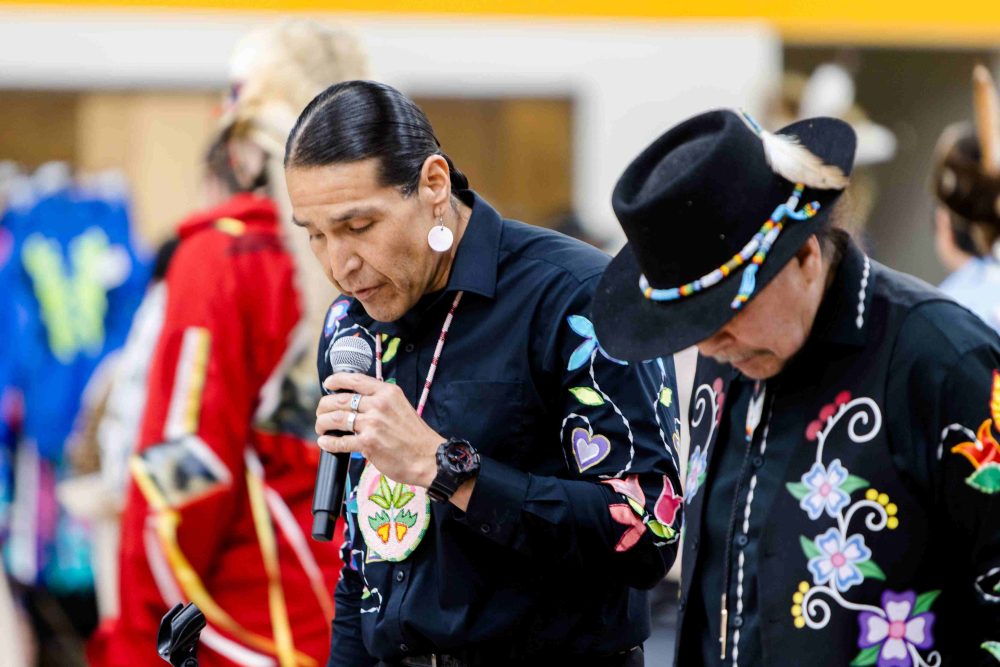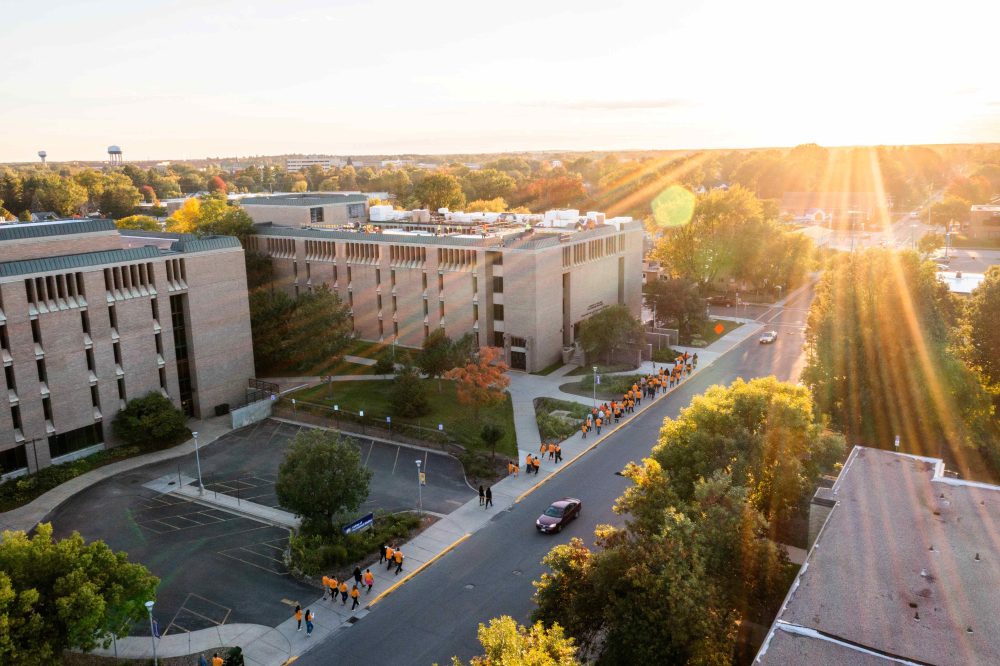Indigenous Land Acknowledgment Statement
BACKGROUND/WHEN TO USE
The Indigenous Land Acknowledgment Statement is encouraged to be read at UWSP activities and events, including but not limited to:
- Convocation
- Commencements
- UWSP sponsored events in Stevens Point and the surrounding communities
- Orientation introductory meetings
- Campus-wide events (i.e. concerts, theatre performances, etc.)
- On-campus special workshops, meetings, conferences, and trainings
- Sporting events
The Indigenous Land Acknowledgment Statement can be incorporated into appropriate UWSP promotional and/or recruitment materials such as newsletters and brochures at the best discretion of the office or organization producing the materials. Faculty are encouraged to include the Indigenous Land Acknowledgment Statement as a part of their syllabi. Only groups that meet regularly and frequently can select and read one complete paragraph of the full Indigenous Land Acknowledgment Statement on a rotating basis to read at the beginning of each meeting.



FULL INDIGENOUS LAND ACKNOWLEDGMENT STATEMENT
With profound reflection, we acknowledge that the University of Wisconsin-Stevens Point exists upon land inhabited by the indigenous people of this area, including but not limited to, the Ho-Chunk, Menominee, Ojibwe, Potawatomi, and the many other nations and groups that predate colonial borders.
Beginning with colonization and continuing for centuries, Native American people were forcibly removed from their home to unfamiliar and inhospitable lands. This brought sickness, trauma, and loss in many forms, including the mass grave site of indigenous people that our campus sits upon. In reverence to the truth, we acknowledge this occurred.
We recognize the responsibility of the university to support Native people, communities—and world views—so all might benefit from their teachings and hard-fought lessons. We also recognize that the generations of Native American communities, their cultures, and their knowledge systems shaped the land in a sustainable way that allows us to continue to enjoy its gifts today. For this, we are truly grateful.
Together we hope to find ways to move forward while acknowledging and respecting this history. Although words cannot convey the weight of the injustices wrought upon all indigenous peoples of Turtle Island, the proof of their resilience is brought into the light by the knowledge that they have been, are, and always will be a part of this institution and the land we live on. In partnership with the Native American Center, we explore durable ways of recognizing, supporting, and advocating for the sovereignty of all tribal nations and their citizens. We commit to work together to honor the past, be intentional in the present, and to build our future with truth.
EMAIL SIGNATURE
I study and work on traditional, unceded land inhabited by the indigenous people of this area, including the Ho-Chunk, Menominee, Ojibwe, Potawatomi, and the many other nations and groups that predate colonial borders. For more information, please go to the dedicated Indigenous Land Acknowledgement Statement webpage.
SHORTENED VERSION
In lieu of the full version, the following short version is appropriate to use in situations not listed above if the audience is aware of where they can view the full version:
The University of Wisconsin-Stevens Point exists upon land inhabited by the indigenous people of this area, including the Ho-Chunk, Menominee, Ojibwe, Potawatomi, and the many other nations and groups that predate colonial borders. We acknowledge that with colonization Native American people have been dispossessed of their lands and irreparably changed by the actions of individuals and institutions. We acknowledge our responsibility to understand and respond to those actions. In partnership with the Native American Center, we commit to working together to honor the past, be intentional in the present, and to build our future with truth.


